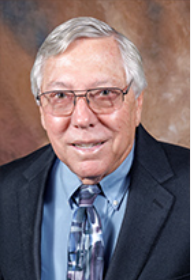Sends letter to Chair McCasland requesting a workshop discussion on policy misalignment—McCasland has yet to respond

Representative Toby Payne
Third District Yavapai Community College District Governing Board member Toby Payne has formally requested that Board Chair Deb McCasland convene a meeting to address potential conflicts between state law and policies adopted by the Board and the Higher Learning Commission (HLC), the institution’s accrediting body.
As of this writing, it is believed that McCasland has yet to respond to Payne’s request.
In his letter, Payne raises concerns regarding the delegation of authority to the college president and the alignment of state law with existing HLC and Board policies. Normally, state law should take precedence over any Board or HLC policies that directly conflict with it.
Payne has requested a discussion to provide clarification and education on these matters. His full letter is reproduced below.
To: Deb McCasland, YCGB Chair
From: Toby Payne, YCGB Member
Subject: Concerns Regarding Governance and Policy Alignment
I am deeply and sincerely disturbed by the current tension within the governing board and between the board and YC administration. After reviewing Policy 310, Resolution 2024-18, Arizona State Statutes, and the Higher Learning Commission’s (HLC) Criteria for Accreditation, I have identified several critical areas requiring attention, conversation, and deliberation among governing board members.
Key Concerns
l . Delegation of Authority: The subject of “delegation of authority” resulted in Lynne Adams providing copies of Attorney’s opinion letters and related correspondence from 2006 and 2010. However, these documents focus on “appoint and employ” versus “appoint or employ” and contracting. They do not address broader governance implications.
Resolution 2024-18 states: “The President shall be authorized to establish all college operational policies, make all decisions, take all actions, establish all practices and develop all activities.” This language appears inconsistent with HLC Criteria Core Component 5.A.I , which reads “Shared governance at the institution engages its internal constituencies—including its governing board, administration, faculty, staff and students—through planning, policies and procedures.”
2. Policy Development and Approval of Policy 310 was presented to the board as part of a packaged consent agenda, with no prior engagement or shared governance process. As such, it cannot be considered a “board policy” but rather one imposed on the board.
Policy 310 references Policy 401, stating: “ The board acknowledges the difference between governance and administration of the college.” This raises questions about clarity and boundaries between governance and administration. Additionally, the statement that “the board’s primary function is to establish the policies by which the college shall be administered” conflicts with instances where the college appears to develop policies that administer the board.
3. Alignment with HLC Criteria and State Statutes HLC Core Component 2.C underscores the autonomy of the governing board to make decisions and highlights the importance of compliance with its subpoints, particularly l, 3, and 5.
Arizona Revised Statutes 15-1444(A) explicitly state that each district board shall “visit each community college under its jurisdiction and examine carefully into its management, conditions, and needs.” This duty cannot be restricted by the administration and contradicts the Resolution’s assertion that “the Board’s sole official connection to the operational organization, its achievement, and conduct is through the College President.”
Lynne Adams made the point clear in her opinion letter dated March 10, 2006 page 3, that “except as otherwise provided” expressly recognizes that the legislature may make exceptions to the general grants of power found in that statute, as a modifier of the powers of the Board.
Proposed Actions
l . Education on Delegation of Authority: I propose a discussion and education session led by our attorney to distinguish between delegating authority and relinquishing or waiving authority. This will clarify the board’s role as the legally constituted and final authority for the operation of Yavapai County Community College District.
2. Work Session on Governance and Policy Alignment: I request that you, as Chair, schedule an agenda item and a work study session to address the following:
-
-
-
- Ensuring alignment between state statutes, HLC criteria, and board policies.
- Clarifying governance boundaries and roles.
- Establishing a shared governance process for policy development
-
-
3. Preparation for HLC Assurance Review: With the next HLC Assurance Review in two years, now is the time to ensure compliance and alignment at all levels. Addressing these concerns proactively will foster good communication, clear boundaries, and shared understanding between the board and administration.
Conclusion
Chair McCasland, I urge you to prioritize these issues and engage the full board in discussions before adopting any further policies or resolutions. Open communication and collaborative efforts are essential to resolving current tensions and ensuring effective governance that benefits Yavapai College and its stakeholders. I expect that you, Dr. Rhine, David Borofsky and Lynne Adams will discuss this, but precisely the point is that this needs to be discussed with the board.
Thank you for your attention to this critical matter.
Respectfully,
Toby Payne
